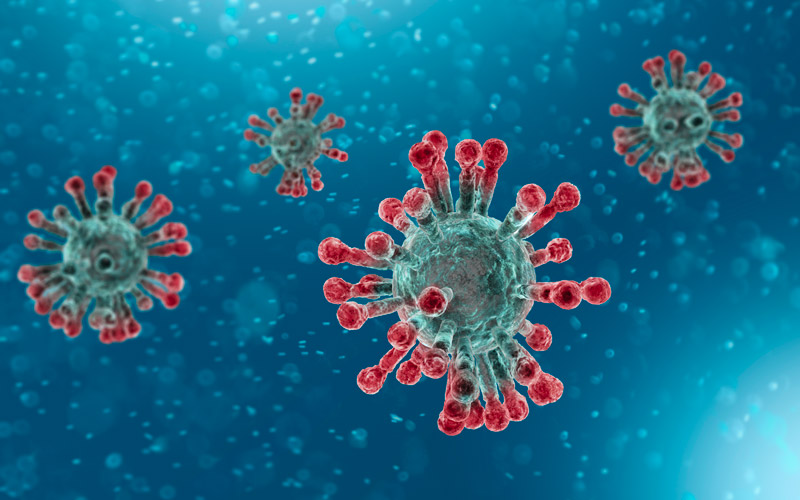
Medical oncologist Angus Dalgleish, M.D., never did prefer the standard treatments for pleural mesothelioma, even when he had recommended them to patients in the past. He thinks there are now better options.
Dalgleish, who is a physician at St. George’s Hospital at the University of London, recently released a case study that detailed a novel treatment regimen that turned a six-month life expectancy for a patient into a six-year survival.
The new cancer treatment involves a series of anti-inflammatories that included low doses of naltrexone, vitamin D3 supplements, and the vaccine IMM-101. This vaccine increases the patient’s immune response.
Dalgleish told the media that he was pleasantly surprised with hell well the treatment worked, but it made sense. He said they had seen positive signs as tumors in other patients have shrunk. This treatment, he said, deserves to be looked at more closely with mesothelioma. It is possible it could become an important treatment for asbestos cancer in the future.
Mesothelioma Patient Sees Increased Quality of Life
The case involved a 65-year old man in the UK who had epithelioid mesothelioma and pleural effusions, as well as lung nodules and thoracic lymph nodes. His first oncologist recommended pleurectomy and decortication surgery, combined with adjuvant chemotherapy and radiation.
The patient instead turned to Dalgleish for a second opinion. The doctor said his patient had serious worries about quality of life issues if he underwent the standard treatments, and Dalgleish agreed with him. Aggressive treatment with mesothelioma can be like putting gas on a fire. He noted that he often says that using these aggressive treatments on mesothelioma is like kicking a sleeping Rottweiler. It does not make a lot of sense.
Dalgleish has seen good results using the vaccine combined with chemotherapy as part of a clinical study for treating pancreatic cancer. It also is known as an immune modulator, which increases the immune response of the patient, but also reduces the negative system response.
Dalgleish Report Indicates Anti-Inflammatories, Vitamin D3 Help
The doctor has performed extensive research with other cancers regarding the benefits of increasing the anti-inflammatory response. He always thought that common vitamin D3 deficiencies in elderly patients reduced the effectiveness of cancer treatments.
He also was aware of two mesothelioma patients who joined a lung cancer clinical study that looked at a similar treatment regimen. They had better results than expected. The doctor said he thought this regimen could be effective, and it was in this man’s case.
A year after his patient began the treatment, A CT scan showed the tumor had not grown, which took him well beyond is initial life expectancy.
Three years later, another scan showed only slow tumor growth, which prompted him to take zoledronic acid, which is used by cancer patients to fight higher levels of calcium. The patient also underwent radiotherapy because of an enlarging chest wall lesion where his original biopsy was done.
Patient Wanted His Story Told to the World
The patient started taking cannabis oil but did not take any other drugs to treat his cancer. He died in 2019, six years after diagnosis. But he died from cancer that migrated into his peritoneal cavity and NOT from the tumor in his chest.
Dalgleish thinks there will be other asbestos cancer patients willing to disregard standard cancer treatments and try a similar treatment regimen in future clinical trials.
He estimated that ⅓ of pleural mesothelioma patients in the UK choose against the standard of care because the survival time is minimal. The reduction in quality of life is serious.
Dalgleish said there are no cancer treatments out there that work well enough that he would take for himself. The treatments are marginal at best and toxic, so why not try something new? (asbestos.com)
Other Non-Traditional Therapies Show Promise In Alleviating Cancer Symptoms
There are other non-traditional cancer treatments for mesothelioma that may not cure the cancer, but they certainly lead to a better quality of life.
- Oncology nutrition: Good, balanced nutrition is very important during and after mesothelioma cancer treatments. Oncologists regularly stress the importance of a healthy diet in cancer treatments. This is especially important to deal with symptoms such as nausea and difficulty swallowing. Some cancer centers employ oncology dieticians to assist mesothelioma patients to make personalized meal plans and offer guidance of nutritional supplements that may alleviate some symptoms.
- Exercise: Mesothelioma doctors recommend reasonable levels of exercise because it has been shown to enhance quality of life. It also lessens the side effects of cancer treatments. Exercise even reduces the risk of cancer mortality and recurrence. Clinical studies also show that it reduces fatigue, boosts mood, and enhances physical function.
- Herbal medicine: Some research suggests some herbs can improve cancer symptoms and reduces some side effects of treatments. Medical marijuana has been shown to relieve pain and nausea caused by chemotherapy in cancer patients. It can even improve appetite during chemotherapy and relieve insomnia.



